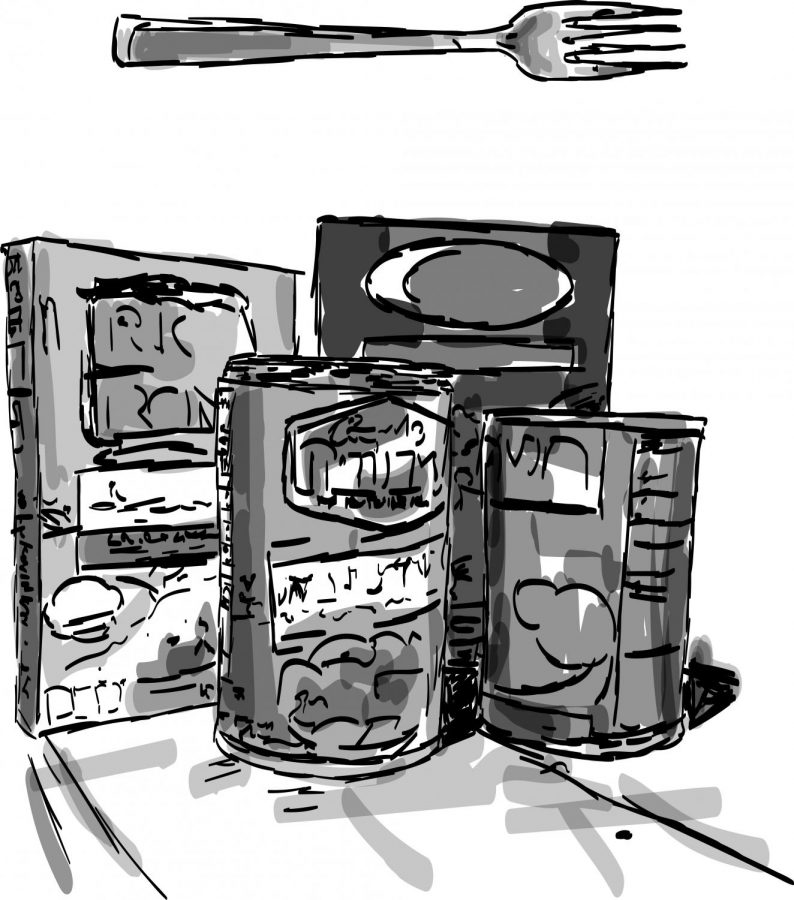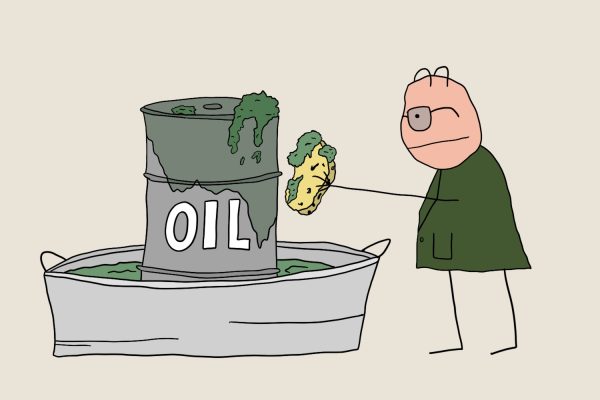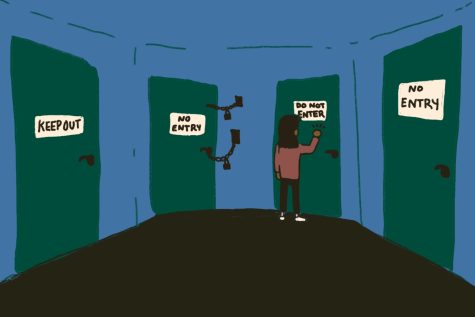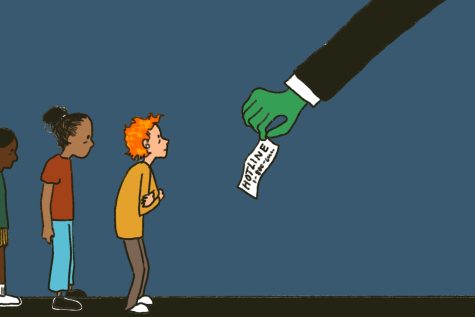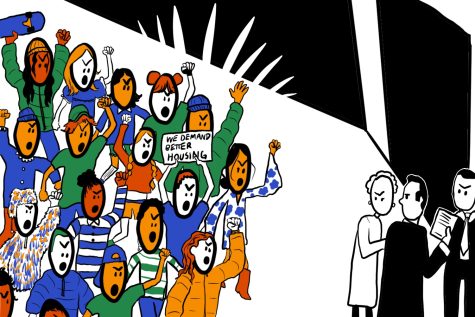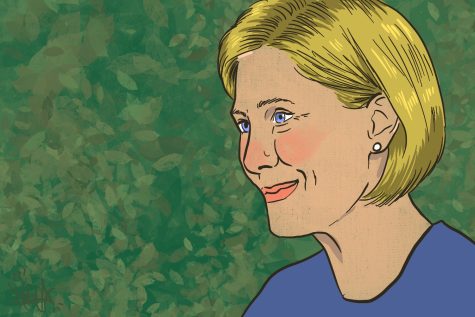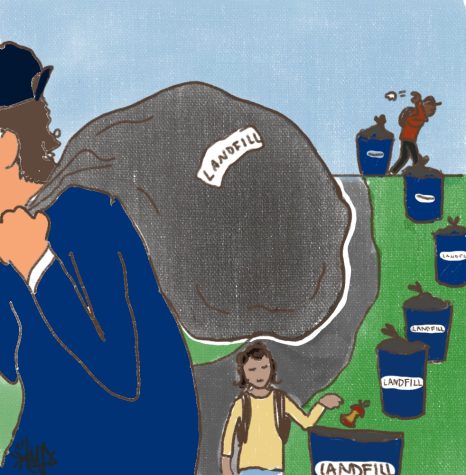Food pantry doesn’t solve bigger problem
March 6, 2020
Last week, UVM saw an unprecedented event: the opening of an on-campus food pantry for students and UVM community members.
It was heralded by SGA President Jillian Scannell, a senior, several food activism clubs on campus and the UVM administration as a landmark movement to fight “food insecurity” on UVM’s campus, to which it is estimated nearly one-fifth of students have experienced.
Although it might provide temporary hunger relief, such as relieving the physical sensations of not having enough to eat, opening a food pantry on campus doesn’t actually solve any of the food insecurity problems on our campus, nor does it create socially desirable environments for students to seek help.
The food pantry is merely a Band-Aid on a bullet hole, and one that is festering out of control.
In order to address food insecurity, we must look to its roots. It is defined as having safe, secure, consistent access to culturally-appropriate food for a healthy lifestyle for all household members.
Many scholars and affiliates do not include emergency food supplies, i.e. food pantries, as ways to address food insecurity because they don’t provide socially-optimal food access pathways, nor do they imply that the household will have consistent access to food outside of the supplies in the pantry.
Food insecurity, rather, is caused by much deeper forms of poverty and institutionalized socioeconomic issues. Maybe someone can’t afford to purchase food because the majority of their income goes to paying for rent, heat, tuition or housing.
We need to stop pretending that a can of beans is going to magically alleviate these wicked social problems.
Although I agree that opening a campus food pantry might be a small step in a marathon, I think we’re really kidding ourselves if we think that it will create a socially-acceptable means of “solving food insecurity.”
On a campus with such a massive wealth disparity between affluent students wearing $1,000 coats and those who can barely afford to purchase a meal at the Davis Center, it can be suggested that having to utilize charity as a means of sustenance is far from desirable.
On the other end of the spectrum, people who contribute to the food pantry might feel good because they’re “helping” the hungry, while in fact, they are contributing to feelings of guilt that community members already have because they need to rely on charity to support a basic need.
Instead, we must look deeper and offer institutional solutions that relieve the burden of food insecurity from all members of the UVM community and beyond.
What might this look like?
For starters: livable wages at local businesses, protections from price gouging by Burlington’s landlords, affordable education and non-monopolized food distribution channels on campus.
Although I understand that there are problems that society has been trying to “solve” for a very long time, it is vital to address the institutional causes of food insecurity rather than just trying to alleviate its symptoms.
Only then will we have a more equitable, just and socially-desirable fullness.


